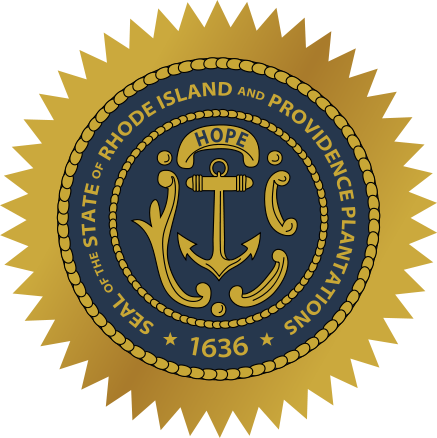June 14, 2021 •
Wyoming Begins to Draft Changes to Voting System
Members of the Joint Committee on Corporations, Elections and Political Subdivisions voted to draft bills to create either an open primary or a ranked-choice voting system. Currently, Wyoming operates under a dual partisan primary system. Under this system, each party […]
Members of the Joint Committee on Corporations, Elections and Political Subdivisions voted to draft bills to create either an open primary or a ranked-choice voting system.
Currently, Wyoming operates under a dual partisan primary system.
Under this system, each party holds an independent primary to select its candidate for the general election.
An open primary system allows for all parties to compete in a single primary election, with the top two votes advancing to the general election.
Rank-choice allows for voters to rank candidates in order of preference on their ballots, with the candidate securing the majority winning the election.
If no candidate wins the majority, the lowest candidate gets eliminated, the votes for that person go to the voters’ second choice, and the votes are retabulated until a majority is reached.
March 12, 2021 •
Bill Moving Municipal Elections Passed in Virginia
Virginia Gov. Ralph Northam has signed House Bill 1157 into law. The controversial bill looked to shifts municipal elections from May to the November general election with new terms commencing on January 1 of the following year. This shift will […]
Virginia Gov. Ralph Northam has signed House Bill 1157 into law.
The controversial bill looked to shifts municipal elections from May to the November general election with new terms commencing on January 1 of the following year.
This shift will effectively extend the terms of current officeholders to facilitate the transition to the election date cycles.
This shift will begin with elections being held in 2022.
August 5, 2020 •
Idaho Governor to Call Special Session Amid Pandemic
Gov. Brad Little stated Wednesday he will call the part-time Legislature back into a special session during the week of August 24 due to the coronavirus pandemic. The special session could include how to conduct the November general election amid […]
Gov. Brad Little stated Wednesday he will call the part-time Legislature back into a special session during the week of August 24 due to the coronavirus pandemic.
The special session could include how to conduct the November general election amid the pandemic.
Also a topic of discussion is legislation creating a liability shield for protection against lawsuits during declared emergencies such as the pandemic.
How a special session would work during the pandemic and how much it would cost is unclear.
Lawmakers would have to be in the Statehouse in Boise for their votes to count.
May 14, 2020 •
California Becomes First State to Mail Ballots to All Voters
California Gov. Gavin Newsom signed an executive order requiring election officials to send mail-in ballots to every registered voter ahead of the November general election. Newsom acknowledged attempting traditional voting on a mass scale would likely still be too dangerous […]
California Gov. Gavin Newsom signed an executive order requiring election officials to send mail-in ballots to every registered voter ahead of the November general election.
Newsom acknowledged attempting traditional voting on a mass scale would likely still be too dangerous even in November due to the COVID-19 pandemic.
In-person voting is still expected to occur, but the number of people voting at polling places is expected to decline.
April 22, 2019 •
Georgia Raises Contribution Limits
Last week, the Government Transparency and Campaign Finance Commission voted to raise contribution limits. For statewide elected offices the contribution limits raised from $6,600 to $7,000 for primary and general elections. Primary and general runoff elections limits were raised from […]
 Last week, the Government Transparency and Campaign Finance Commission voted to raise contribution limits.
Last week, the Government Transparency and Campaign Finance Commission voted to raise contribution limits.
For statewide elected offices the contribution limits raised from $6,600 to $7,000 for primary and general elections.
Primary and general runoff elections limits were raised from $3,900 to $4,100 for statewide elected offices.
Contribution limits for all other offices were also raised from $2,600 to $2,800 for primary and general elections and from $1,400 to $1,500 for primary and general runoff elections.
The previous contribution limits had not changed since 2016.
October 13, 2016 •
Yukon Territory General Election Called for November 7, 2016
On October 7, Premier Darrell Pasloski announced Yukon’s general election to elect the 34th Yukon Legislative Assembly will be held on November 7, 2016. Pasloski also directed Yukon’s Commissioner Doug Philips to dissolve the 33rd Legislative Assembly and to issue […]
 On October 7, Premier Darrell Pasloski announced Yukon’s general election to elect the 34th Yukon Legislative Assembly will be held on November 7, 2016. Pasloski also directed Yukon’s Commissioner Doug Philips to dissolve the 33rd Legislative Assembly and to issue the writs of election.
On October 7, Premier Darrell Pasloski announced Yukon’s general election to elect the 34th Yukon Legislative Assembly will be held on November 7, 2016. Pasloski also directed Yukon’s Commissioner Doug Philips to dissolve the 33rd Legislative Assembly and to issue the writs of election.
The November election period will extend from October 7, the date the writ was issued, to the return date of the writ, which will occur on Monday, November 14.
On July 19, the Rhode Island Ethics Commission voted unanimously to bar people from filing ethics complaints 90 days before a general election. The commission still reserved the right to lodge its own internal complaints during the 90-day period. With […]
 On July 19, the Rhode Island Ethics Commission voted unanimously to bar people from filing ethics complaints 90 days before a general election. The commission still reserved the right to lodge its own internal complaints during the 90-day period.
On July 19, the Rhode Island Ethics Commission voted unanimously to bar people from filing ethics complaints 90 days before a general election. The commission still reserved the right to lodge its own internal complaints during the 90-day period.
With this rule, the commission believes it will prevent frivolous complaints, designed to influence elections, from being filed.
In 2016, the moratorium will begin August 10 and last until November 8, the date of this year’s general election.
September 10, 2013 •
NJ Gov. Vetoes Bill Consolidating Election Dates
October 16 and November 5 remain as election dates
 Yesterday, New Jersey Gov. Chris Christie vetoed Assembly Bill 4237, which would have merged the dates of this year’s general and special elections.
Yesterday, New Jersey Gov. Chris Christie vetoed Assembly Bill 4237, which would have merged the dates of this year’s general and special elections.
Because New Jersey’s statewide elections in November are scheduled only 20 days after the October special election, critics have argued the expense of the two elections is too costly for the state and will diminish voter turnout for both elections. The vetoed bill changed the date of the 2013 general election from November 5 to October 16 and directed the secretary of state to provide appropriate notice to state, county, local officials, and the general public as to the change of date.
Another bill vetoed yesterday, Assembly Bill 4249, would have allowed early in-person voting at designated polling places during the special general election scheduled for October 16, 2013. Under the vetoed bill, votes would have been considered in-person early voting for both the vacant U.S. Senator seat and for all offices and public questions to be voted on at the general election on November 5, 2013.
State and Federal Communications, Inc. provides research and consulting services for government relations professionals on lobbying laws, procurement lobbying laws, political contribution laws in the United States and Canada. Learn more by visiting stateandfed.com.

